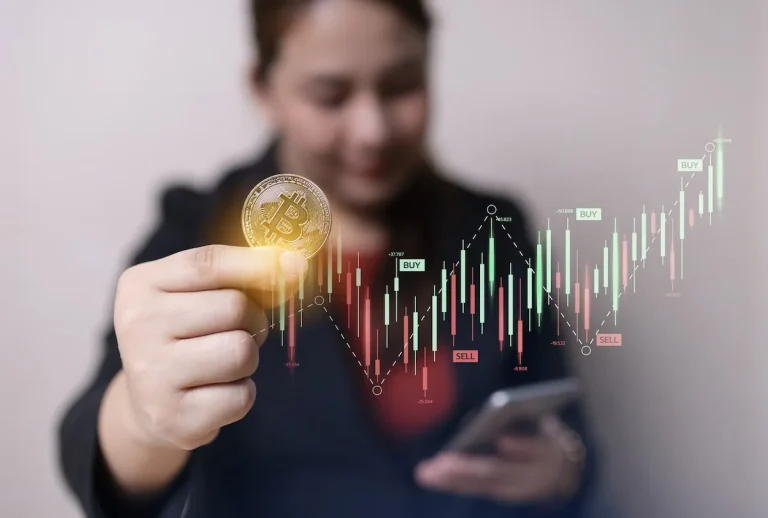Content
To better understand crypto vs. blockchain, it’s important to know that blockchain is the underlying technology supporting a wide range of digital assets, not just cryptocurrencies. Investing in the digital asset ecosystem offers broader exposure to emerging technologies and markets, compared to focusing solely on crypto. Digital assets operate through digital platforms and technologies, leveraging cryptographic methods to secure and facilitate transactions. These assets, which can Cryptocurrency range from cryptocurrencies to digital tokens representing real-world assets, are typically stored and managed on decentralized systems like blockchain which require private keys to secure wallets. Blockchain technology has prompted a powerful shift in the way investors think about owning and trading physical and virtual assets. The rise of digital assets completely redefines notions of value and ownership.
Neptune Digital Assets (CVE:NDA) Trading 14.5% Higher – Time to Buy?
The value of asset-backed tokens is determined by the value of the underlying asset. His work has been trade digital asset featured in the New York Times, USA Today, Fox Business Network, Wall Street Journal All Things Digital, the Atlantic Podcast, and more. Dave’s passion is creating elegant software that allows everyday people to benefit from bitcoin to achieve financial freedom. Altcoins face risks such as regulatory scrutiny, security vulnerabilities and market speculation, which can lead to extreme volatility.
TikTok Ban: Apple Issues ‘Unprecedented’ Response For iPhone Users
Many projects have developed hybrid systems that combine automated and community-driven decision-making processes, each offering unique insights into decentralized governance. These differences result in varying https://www.xcritical.com/ levels of decentralization, security and utility, making altcoins more experimental compared to bitcoin’s established role as a store of value and digital gold. The articles and content published on this blog are provided for informational purposes only.
Discover the Next Generation of Digital Asset ETFs
This performance has made Solana particularly attractive for decentralized finance applications, NFT marketplaces, and gaming platforms that require rapid transaction processing. Digital assets are supported by innovative technology such as blockchain and smart contracts. These technologies offer a secure, transparent ledger for asset transactions through blockchain while allowing the generation of digital goods with smart contracts.
Central Bank Digital Currencies (CBDCs)
- Get stock recommendations, portfolio guidance, and more from The Motley Fool’s premium services.
- However, many crypto enthusiasts recommend transferring your funds to your own blockchain wallet to ensure that you’re in full control of your cryptocurrency.
- Although this all might seem complicated, many of the best NFT wallets are also blockchain wallets that can store cryptocurrency.
- While bitcoin focuses on being decentralized digital money, altcoins allow you to trade assets tied to other use cases, such as smart contracts or memes.
- Digital assets have become an important aspect of modern commerce and personal interactions.
- The information provided does not constitute investment advice and it should not be relied on as such.
Polkadot enables interoperability between different blockchains through its “parachain” system. Its shared security model allows multiple specialized blockchains to operate simultaneously. USDC is a regulated stablecoin backed by fully-reserved assets, primarily cash and short-term U.S. It has gained prominence for its transparency and regular audits of its reserves.
With that in mind, it’s important to understand the foundations of financial digital assets before you can effectively integrate them into an investment strategy. Liquidity is the lifeblood of all tradable assets including cryptocurrency. Regulators in Asia are largely supportive of digital assets, and many are busy developing digital asset custody frameworks.
Crypto assets refer to all digital assets built on blockchain technology, including cryptocurrencies, tokens, and NFTs. This broader category captures both fungible and non-fungible assets, serving various financial and utility purposes. With the rise of blockchain technology, these assets have gained significant importance, enabling individuals and businesses to engage in decentralized finance (DeFi) and access new forms of investment. Tokenization allows the representation of tangible and intangible assets as digital tokens, enabling broader participation in investments. By converting assets like real estate, art, and commodities into digital tokens, tokenization increases liquidity and accessibility. This shift is poised to revolutionize the investment landscape, making traditionally exclusive assets available to a global audience.
Unlike cryptocurrencies, which are fungible and can be exchanged one-for-one, NFTs are distinct and irreplaceable. While digital assets offer high growth potential, they also come with volatility and regulatory uncertainty. For the average investor, a diversified approach within the digital asset ecosystem can help manage risks.
Several altcoins have established themselves as major players in the market. Despite these varied motivations and applications, it’s important to recognize that not every altcoin project successfully achieves its stated goals. The space continues to evolve rapidly, with new projects emerging while others fade away. This constant evolution drives innovation while also highlighting the importance of careful evaluation when considering any altcoin project. Altcoins come in many forms, each designed with different use cases and goals. The information in this article is up to date for tax year 2024 (returns filed in 2025).
The platform’s accessibility has led to an explosion of new tokens that are based on its blockchain, with developers able to launch new projects with minimal technical barriers. This ease of creation has led to a proliferation of worthless tokens, highlighting the importance of thorough research and due diligence in the space. The IRS requires taxpayers to maintain sufficient records to validate the positions taken in their tax returns. Effective data management is crucial for maintaining accurate records of digital asset transactions.
Altcoins represent a diverse and rapidly evolving segment of the cryptocurrency market. It is vital to be mindful of crucial words like ‘digital’, ‘assets’, ‘asset’ & ‘management’, which are all pertinent when it comes down to dealing with them safely in a correct manner. In this article, we will take an in-depth look at how both technologies function to support digital resources and exchange activity securely on the internet. If you decide to invest in cryptocurrency or NFTs, doing plenty of research is a must. There are quality projects out there, but you’ll also run into lots of scams and cryptos that have no real utility. Virtual currency like Bitcoin is an example, and they are completely digital.
Shiba Inu emerged as a tongue-and-cheek “DOGE killer,” yet achieved significant market cap when speculators were able to turn it into a viral growth sensation. In the privacy token category, Monero (XMR) stands out for its focus on transaction confidentiality. It’s the number one choice for those who demand the utmost privacy, uses ring signatures, stealth addresses, and RingCT technology to obscure transaction details.
This ongoing research and development cycle helps advance the entire digital asset field, even when individual projects don’t achieve widespread adoption. This means that if you buy, sell, or exchange digital assets, the capital loss or gain from a digital asset’s transaction must be reported on your tax return. Additionally, if you receive digital assets as payment for services as an employee, this is considered wages and must be reported by your employer on Form W-2, Wage and Tax Statement, like traditional wages. With the rise of cryptocurrencies, NFTs, and widespread digital infrastructure, more and more people are gaining and trading value through their digital assets. Just like the string of text that makes up your wallet address and private keys, every digital coin and NFT has a unique address. Every digital asset is tracked using a large public database called a blockchain.
And it’s understandable, given the novelty and technical complexity of these assets and technologies. Digital addresses are used to identify websites on the internet, which can be considered as digital assets with potential value. In the vast realm of the digital era, the concept of “digital assets” stands out as a cornerstone. If you are looking for digital assets to trade, here are some options to consider. Individuals are also able to create a crypto wallet with providers such as Metamask,Trust Wallet and Exodus to trade on decentralised exchanges such as Uniswap.







Leave a comment